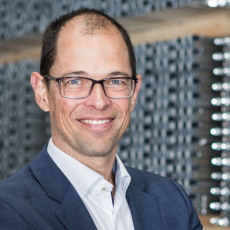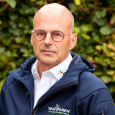You took over BOAL Group at the beginning of last year, just as the pandemic ended and the war in Ukraine was starting. How did it feel to keep the company afloat during this challenging timeframe?
It was quite challenging to have stepped into the role of CEO exactly at the confluence of such difficult times. The world has changed dramatically in the meantime, and the inflation reflected in energy prices impacted many businesses worldwide. Thankfully, our half a century old presence in the horticulture space proved to be a good fending mechanism and we managed to keep going, although with altered plans. Our aluminum extrusion branch supplies both the greenhouse and solar sector and, thus, this business diversification allowed us to mitigate risks.
Ever since our inception in 1970, when we were a family-owned company, we have been focused on aluminum roof deck and sidewall systems for greenhouses and we are now the global market leader. Furthermore, we have safe-guarded a part of the value chain to be able to respond quicker to our customers, and to have a secure access to our core product in case of any supply chain challenges. In 2018, we were acquired by Equistone, a British private equity firm, as a first mover in the consolidation of the sector.

On an annual basis, 400 hectares of greenhouses are built worldwide using our greenhouse systems, and over the last ten years we delivered the equivalent of four and a half thousand football fields.
That’s a massive scale and we are proudly pushing ahead.
How do you assess the demand for your products in different global markets, considering the rapid growth of vertical farming and the propensity for local production?
We will need to feed the growing global population, while the increasing wealth of the middle class and the transition to plant-based diets require more vegetables and soft fruits. Simultaneously the amount of arable land is stagnant, as we manage to counter further deforestation. And weather conditions are getting more extreme, which necessitates the use of controlled environment agriculture (CEA). Lastly the energy transition requires a further acceleration of renewable sources such as solar energy. At BOAL Group we are at the forefront of all these macro trends. As such we are very positive about the future where we have a massive role to play.
Up to 90% of the structures that we produce are exported outside of the Netherlands, and while the European market is temporarily restrained now due to the energy crisis, we are seeing major growth opportunities for greenhouses in the U.S., Canada, the Middle East, Australia and Asia. Both in greenhouses and in vertical farming, the sources of energy, as we step away from fossil fuels, can be a mix of wind, solar and geothermal. Both these two controlled environment options have their individual strong points, with vertical farms being more useful in niche crops (leafy greens, herbs, etc.) near metropolitan areas, and traditional high-tech greenhouses excelling in big volume crops (e.g., tomatoes or cucumbers). For many years, the Netherlands has been the Silicon Valley of the greenhouse industry, but shipping food around the world leads to waste and a high CO2 footprint. At BOAL Group, ESG (environmental, social, governance) is at the core of our being, and exporting technology rather than the end product is much more sustainable and beneficial for the entire planet.
What are some of the main innovations that are supporting your efforts to do more with less?
The integration of solar panels within the greenhouse construction is an example. Also the introduction of the most efficient climate screens systems through which growers can now save up to 70% of their energy usage, is an important step. Since the first one and a half meters of the greenhouse does not need to be made of glass, we can replace it with 10-centimeter-thick insulation panels that greatly reduces the energy bills. In addition to these, for over 20 years now, we have been working with engineering companies to ensure that all the automation processes are perfectly timed and optimized. All in all, controlled environment agriculture leads to enhanced yields per square meter per year, easily ten times more than in traditional open field agriculture.
And with CEA, we need considerably less water, thus being able to grow one kilogram of tomatoes with as little as 4 liters instead of the 100 to 300 liters in open field crops. Rain water can be harvested and the water from the evaporation process can also be recycled. Installing insect netting that keeps pests out and drives down the use of chemical pesticides is also a key solution to protect biodiversity.
What is the main mission that you would like to accomplish at BOAL Group going forward?
As we are continuing to strengthen our global presence, the focus will be to further transform BOAL into a purpose driven company that is able to feed and power the world through the greenhouses and, respectively, the solar solutions that we produce. By addressing our Scope 1, 2 and 3 emissions, i.e. looking both upstream and downstream in the value chain, we will be able to lead the way both for other players in the industry and for the consumers. Being successful in the agriculture space is not about immediate revenue, but about thinking ahead and making efforts to allow long-term sustainability.






